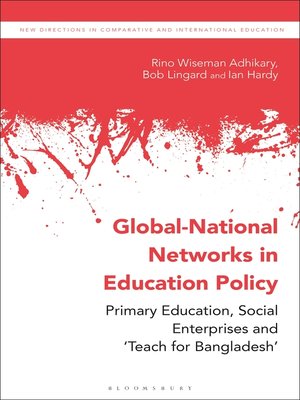Global-National Networks in Education Policy
ebook ∣ Primary Education, Social Enterprises and 'Teach for Bangladesh' · Combat Aircraft
By Rino Wiseman Adhikary

Sign up to save your library
With an OverDrive account, you can save your favorite libraries for at-a-glance information about availability. Find out more about OverDrive accounts.
Find this title in Libby, the library reading app by OverDrive.



Search for a digital library with this title
Title found at these libraries:
| Library Name | Distance |
|---|---|
| Loading... |
Set against the backdrop of globalization and global philanthropy, this book offers new perspectives on the sociological dynamics and governance implications of 'social entrepreneurial' policy in education. It examines the spatialities, relationships and culture that powerfully mediated the making and localisation of 'Teach for Bangladesh'.
This globalised and philanthropy-backed reform model is based on 'Teach for America/All' (TfA) which promotes social entrepreneurial solutions to educational problems across continents. The authors demonstrate how TfB's policy model travelled through networks of diaspora, finance, technology and media and became established in Bangladesh through complex policy work. The book documents empirical research from Bangladesh to draw out broader implications in relation to education policy-making and policy content in today's globalizing world. The book also contributes to ongoing debates in contemporary comparative education about North-South dialogue, policy mobility and transfer, philanthrocapitalism, and international teacher education.
This globalised and philanthropy-backed reform model is based on 'Teach for America/All' (TfA) which promotes social entrepreneurial solutions to educational problems across continents. The authors demonstrate how TfB's policy model travelled through networks of diaspora, finance, technology and media and became established in Bangladesh through complex policy work. The book documents empirical research from Bangladesh to draw out broader implications in relation to education policy-making and policy content in today's globalizing world. The book also contributes to ongoing debates in contemporary comparative education about North-South dialogue, policy mobility and transfer, philanthrocapitalism, and international teacher education.







